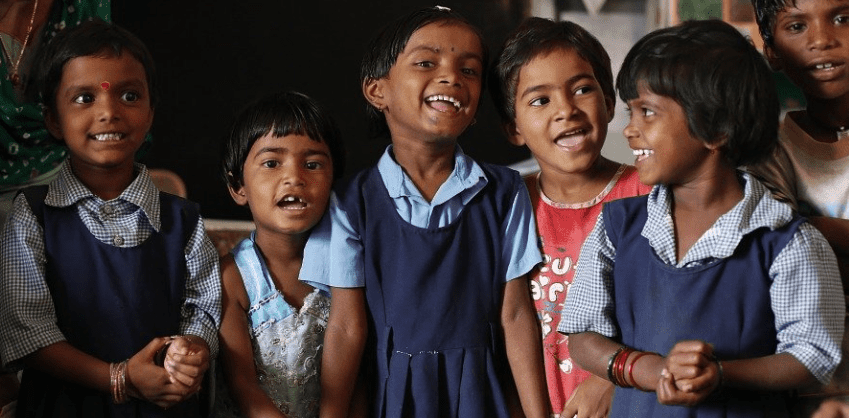
The 14th-century world witnessed one of the worst health crises in the world like the bubonic plague. It killed nearly one-third of the whole of humanity. More than 5 centuries later world again found itself in a similar situation ie Spanish flue, which killed nearly 50 million people. Again after a century, we are amid a global pandemic that has not only disrupted the global economic system including that of India but also has threatened the very existence of Humankind.
Since our existence as an intelligent species, health has played a very important role. We have found bones of early humans that have surgery marks and have healing evidence showing some form of health care existance.

India has a very rich history in healthcare and medicines. Traditional medicinal systems of India like Ayurveda are world-famous. The methods adopted by Sushruta and Charak like. Nose surgery is still finding a resemblance with modern-day surgery.
Fast forward to the current time, India on one hand leading in medical research, vaccine production, pharma industry et at while on the other hand is considered as “ disease capital” of the world. Recent pandemic has highlighted the importance of a strong, inclusive and resilient healthcare system which India needs to meet the 21st-century requirements.
World health organization defines health as physical, mental, and social well-being and not just the absence of illness. Therefore health is a multidimensional concept. It includes free from diseases both communicable and non-communicable, free from mental and psychological stress, and the ability to constructively engage with people and society.
India in the 21st century faces a dual problem. First are the traditional diseases like Malaria, TB pneumonia, etc. Causes a lot of mortality every year. Second emerging diseases like HIV, cancer obesity, diabetes et al are increasingly becoming common.
Another area where India performs poorly is malnutrition. According to the global hunger Index released by World Economic Forum, India is the world’s 94th Hunger country. Also, it is home to over 40 Million stunted and 17 million wasted children, putting the future of India at risk.
Also Read: Increasing the Age of marriage for Girl: Essay PDF Download
Moreover, India also lacks maternal and infant care. With a maternal mortality rate of 120 and an infant mortality rate of around 38, India still lags far behind the developed countries.
The recent pandemic has highlighted the dismal picture of India’s healthcare. With a low doctor-to-patient ratio of 32 per lakh population to severe scarcity of hospital beds and nonavailability of necessary items like ventilators and oxygen cylinders etc. India is among the worst in several health indicators. Even basic primary health care is not reaching everybody.
The 21st century also poses newer threats to human health. Newer viruses and bacterias have been discovered in recent years. For example SSRS outbreak in the middle east, the swine flu outbreak in 2009-10, the ebola outbreak in 2014-2015, and now the COvid-19 pandemic. This pandemic has the potential to threaten our social, political as well as economic setup. Post world war 2, the world has seen tremendous economic growth, this has led to changes in lifestyles, working culture, eating habits and has also led to a globalized world.

The above changes have caused certain unintended problems. For example, it has increased mental and psychological stress leading to an increase in mental health problems and suicides. Lifestyles diseases like obesity, diabetes, etc are now becoming common in all countries including India.
The globalized world has also facilitated the spread of diseases like in the case of several viruses leading to pandemics. It also facilitates the spread of radical ideas disturbing peace and harmony all over the world. Mental health problems have increased like blue whale challenges which have put ever our children at risk.
Newer technology is also acting like a dual-edged sword. One had research and development in medical science like gene editing, through CRISPR-CAS9 shows high potential in treating diseases. While on the other hand misuse of this niche technology can be devastating reports have emerged from china about designer babies. If not regulated well these can penetrate India as well.
India since independence tried to focus on public health and healthcare. Article 47 of the constitution states that the “state shall regard raising the level of nutrition and standard of living and improvement in public health among its primary duties.
Subsequently, through five-year plans, public expenditure was focused on delivering healthcare facilities to every corner of India. Recently in 2017, India has adopted a new national health policy that tries to meet the needs of 21st-century demands. Also, schemes like Ayushman Bharat, the PNPNDT act, the National nutrition mission, and several state-level schemes try to bring quality healthcare for all.
India through the Indradhanush scheme increased vaccination from around 40 % to over 80% within a very short period. Similarly, through the public distribution system, mid-day meals, and focused attention on nutritious food, India is poised to end hunger and bring down malnutrition in the country.
Moreover, now through eat and Health campaign government is trying to nudge people’s behavior. Making people shift to nutritious food is one of the greatest challenges which India faces in the 21st century.
NITI ayog has recently come up with a digital health strategy. COVID has highlighted the importance of telemedicine, tele consultancy, and e-health technologies. There is a need to increase the acceptance of these among people.
With rising internal migration due to many reasons like jobs, education better opportunities it is high time that India adopts digital healthcare. Talks are going to set up a national e-health authority and digitize all our public as well as private healthcare. This would enable a person to get a healthcare facility seeminglessly. Also, digital health records would enable better diagnosis and treatment.
Hence we can conclude that A Health system meets 21 century needs in India.